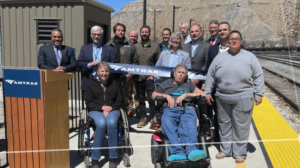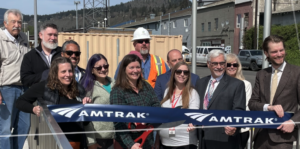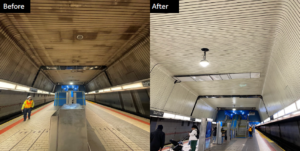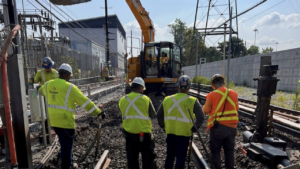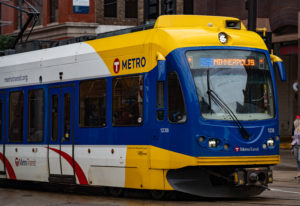MetCouncil sends updated Blue Line Extension Project to municipalities for consent
Written by Jenifer Nunez, assistant editor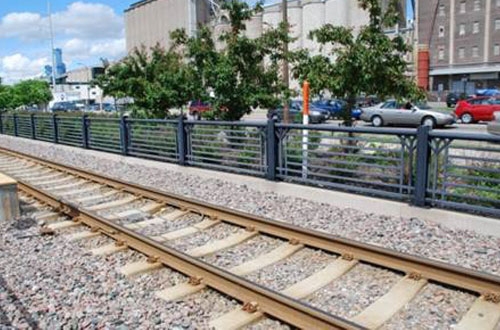
The Metropolitan Council (MetCouncil) has approved an updated project scope and $1.496-billion cost estimate for the planned METRO Blue Line Extension LRT Project. The project, which now includes 11 stations, was recommended for approval at November's Corridor Management Committee meeting.
The vote means staff will now submit municipal consent plans for the 13-mile line for local review and approval. Elected officials in Hennepin County and the corridor cities of Minneapolis, Golden Valley, Robbinsdale, Crystal and Brooklyn Park will have until early March 2016 to consider and approve the line.
The Blue Line Extension Project will expand the existing Blue Line from Target Field in downtown Minneapolis into the northwest suburbs. When completed, the line will offer a one-seat ride from the Target Northern Campus in Brooklyn Park to the Mall of American in Bloomington, with stops throughout Minneapolis and at the Minneapolis Saint Paul International Airport.
“The Blue Line Extension will connect thousands of residents throughout our region with jobs,” said Metropolitan Council Chair Adam Duininck. “We’ve seen great momentum for this project, which builds on our transit investments in the region. I look forward to continued support from our project partners and communities as we work to make our transit system one of the best in the nation.”
Minnesota state law requires municipal consent, which means local approval of an light-rail transit system’s physical design components including tracks, bridges, stations, roads and support structures. The municipal consent process allows for public input on the preliminary design plans. Input can come at the public hearings that each city and Hennepin County will hold, by e-mail, online submissions or written comments.
By early March 2016, the five corridor cities’ councils, Hennepin County board and railroad authority would need to act on plans for their jurisdictions.
In August 2016, staff will finalize the 30 percent design plans and specifications and apply with the Federal Transit Administration to enter the engineering phase of the project. Heavy construction is set to occur in 2018-2020, with passenger service beginning in 2021.

